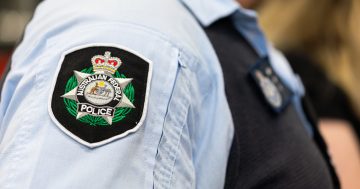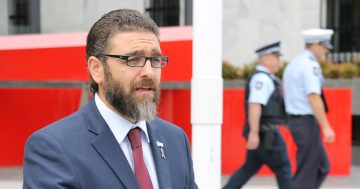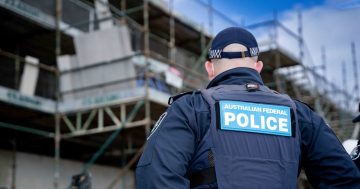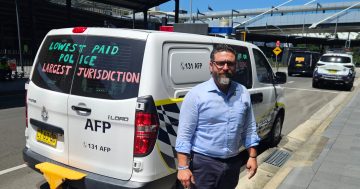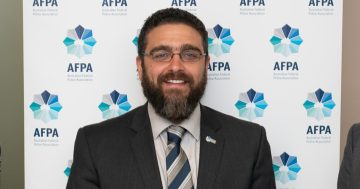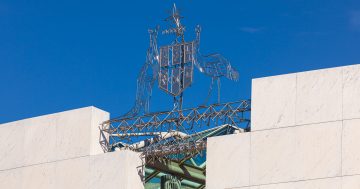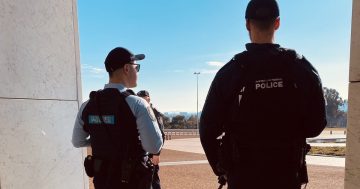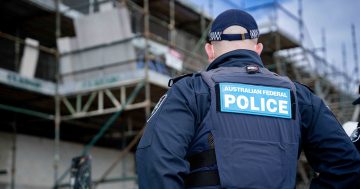
AFPA president Alex Caruana says Prime Minister Anthony Albanese would be foolish to think that a former police officer, Peter Dutton, isn’t going to play to his strengths for a potential law and order election. Photo: James Day.
Police forces around Australia are collectively suffering from a lack of 7000 officers, but the branch suffering most from this deficit is home to the country’s top cops – the Australian Federal Police (AFP).
Following a long year of negotiations with the government, their union representatives (AFPA) were, to say the least – disappointed by the result of their 2024-2027 enterprise agreement (EA).
In a conversation with Region, AFPA president Alex Caruana says at the core of his members’ discontent, is a failure by the Federal Government to recognise that they are not the same as your average public servant.
On top of their community policing service in the ACT, sworn and unsworn officers of the AFP are expected to protect high office holders, secure major airports, stop child exploitation, bring down transnational crime groups and disrupt drug smuggling, human trafficking and violent extremist groups.
Yet despite these significant issues being at the front of mind for voters leading into the federal election, Mr Caruana says the AFP “don’t have the resources to do” what everyone expects them to.
“Over the last ten years, the AFP is the only police force in Australia that’s gone backwards in sworn police officer numbers (-2.7 per cent), yet the number of jobs have stayed the same,” says Mr Caruana.
“The government not only wants the AFP to maintain the level of coverage and capacity, but are increasing what they want our members to do without providing any additional funding for it.”
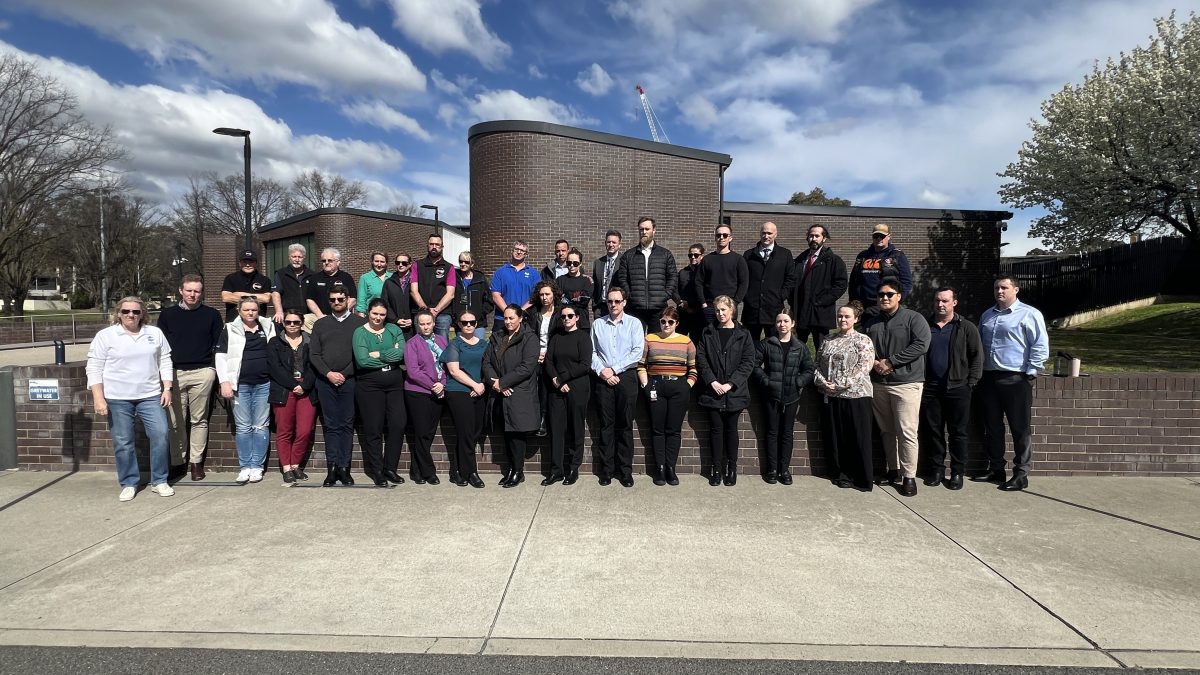
Mr Caruana said that during the COVID-19 pandemic “we policed the decisions that government made and now we’re public enemy number one … so nobody wants to join the police force”. Photo: James Day.
Mr Caruana says the AFP was once (15-16 years ago), the best paid police force in Australia. But now, those on the frontline are “all feeling overworked and undervalued“.
Among his chief concerns is the AFP’s “significant problem with psychosocial hazards in the workplace and abroad”, which Comcare CEO Greg Vines has disclosed the extent of in recent conversations. On top of bullying and harassment, Mr Caruana says his members are struggling because “they don’t have the resources or support to do their job”.
“For example, one child exploitation team working out of a major city used to have over 20 members but now operates with less than 10,” he says.
The AFPA president suggests there’s under 100 personnel working in the child exploitation area, for which one team received around 58,000 reports last year. As someone who has worked in a forensic capacity on such jobs, Mr Caruana says they’ve found gigabytes of such material with thousands of videos and images to work through.
“These people are burning out and it’s like a volcano waiting to erupt.”
The AFP has increased executive level jobs by 13 per cent and hosts the highest paid commissioners in the country. While Mr Caruana agrees with the latter situation, he says there’s a “massive gap” between them and their police officers.
“If you’re going to continue to pay the people at the top and not pay the people at the bottom, the government is creating a rift that’s already showing in the morale of the troops,” he says.
“I’ve never seen them as low as they are.”
One of the biggest things members say to the union head is, “What’s the point?”
“What’s the point of arresting this person for rape or for child exploitation or for street racing when the judicial system just goes, ‘Oh, they come from a good family,'” says Mr Caruana.
“What message is that sending to the community or perpetrator, but more importantly the victim?
“We’re taking away the rights of the victim who in order to heal – need to feel as though justice has been done.”
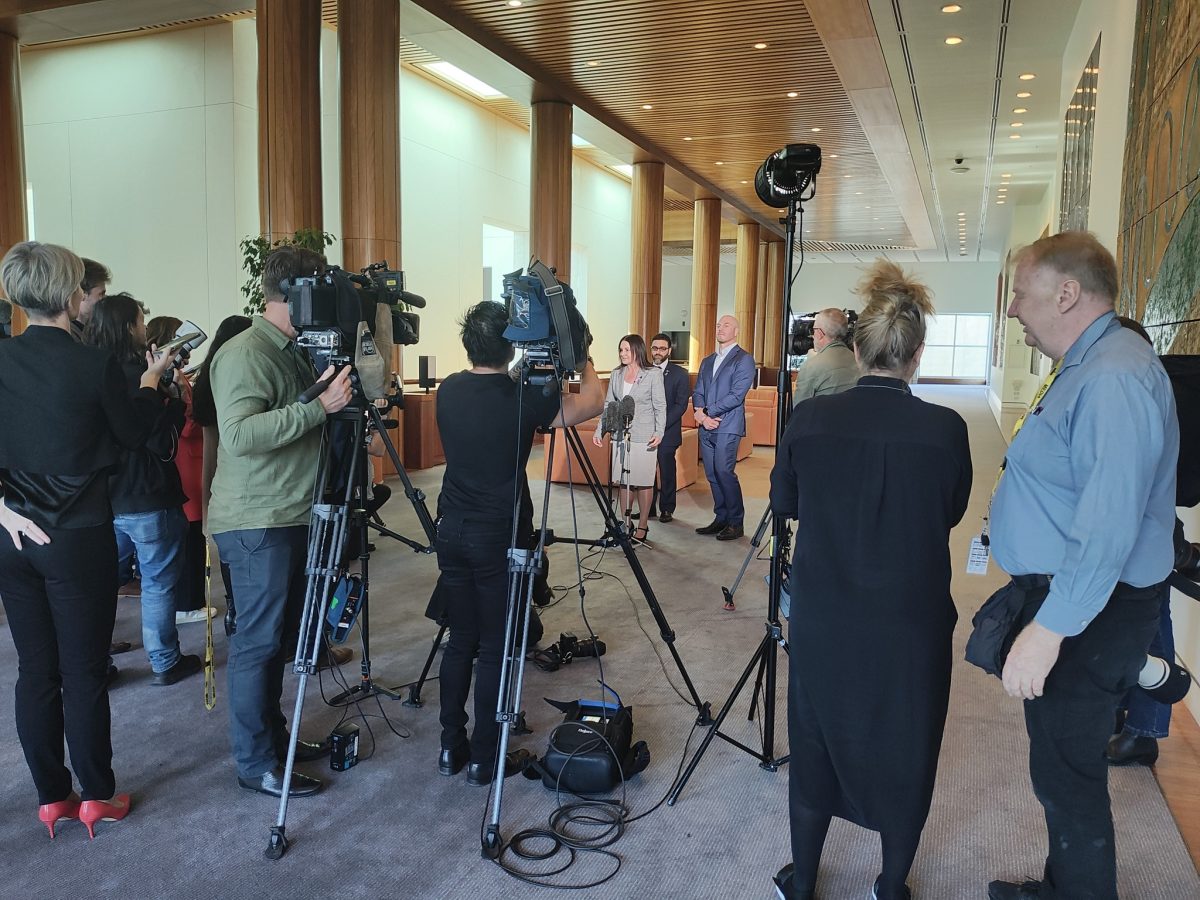
“We’re willing to work with all sides of government to help our members,” says Mr Caruana. Photo: Facebook.
With AFP members leaving the force at alarming rates, either going into the APS or across borders for a better deal in the rest of the countries’ police forces, Mr Caruana says things are only going to get worse unless the government “legitimately help my members”.
“I’m not interested in people that want to be my friend when it’s election time,” he says. “I’m interested in people that want to be friends throughout, not just when votes count.”


